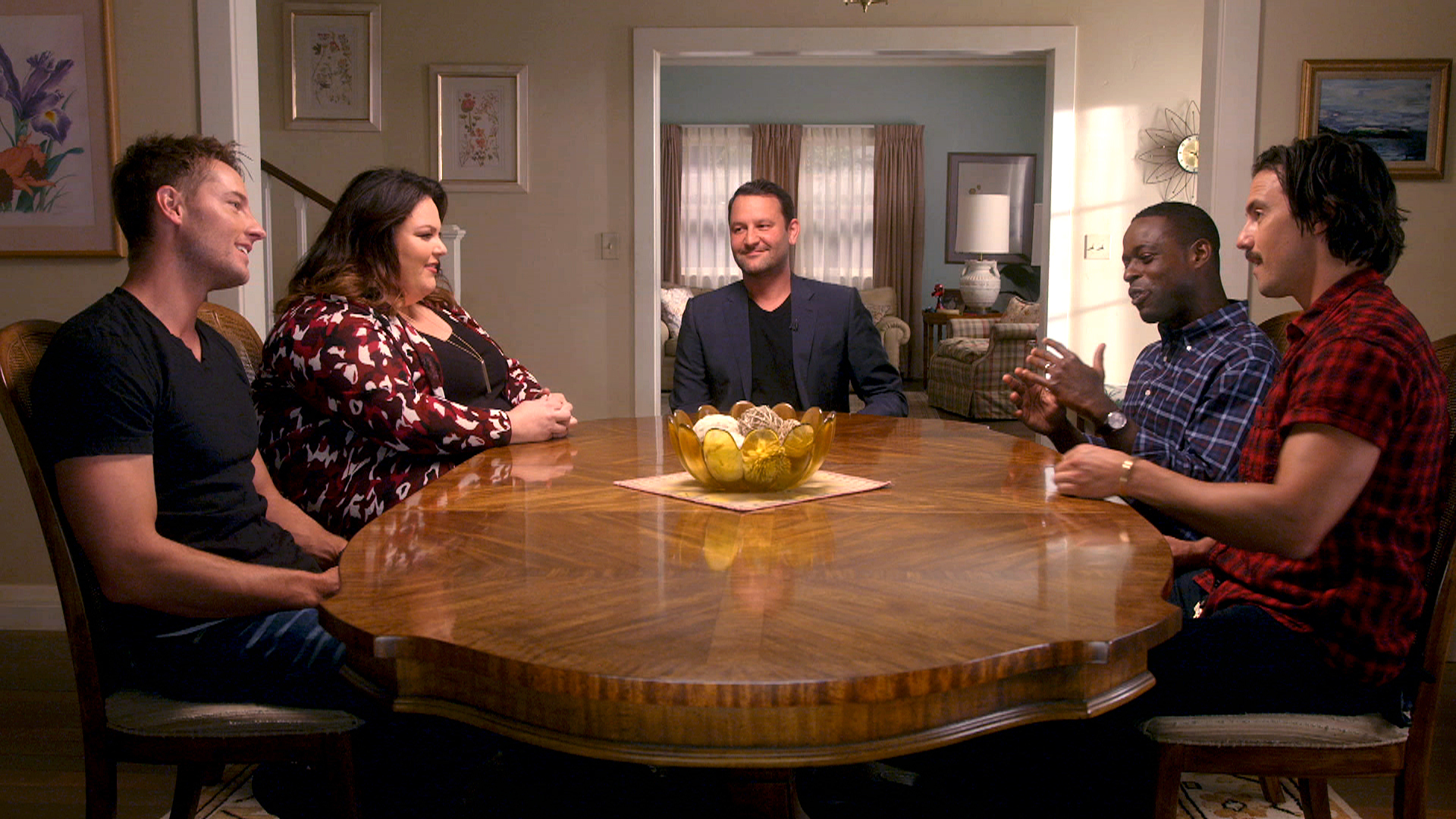Warning: spoilers ahead!
If you happened to be scrolling through Twitter on the evening of Sept. 26, you were bound to notice many posts sporting a little tissue box next to a trending hashtag, #ThisIsUs, and endless crying memes from the overwhelmed users. They were tweeting about the season premiere of NBC hit show “This Is Us,” which Deadline reports had a viewership of 17.7 million, the biggest jump for any Tuesday show in its sophomore season.
Though the posts were already notable for their highly emotional quality, as I flipped through countless virtual conversations that night, the real miracle seems to be the camaraderie and unification “This Is Us” offers such a large group of fans. In our politically fraught time, when tensions seem to be high around any topic, “This Is Us” has managed to unite viewers from all walks of life and backgrounds. While many have tried, no other show has captured the hearts (and tears) of America the way show-runner Dan Fogelman’s family drama has. Through emotionally complex storylines, expert use of time hopping and a candid portrayal of the family, “This Is Us” has managed to appeal to the vulnerability in all of us and find humanity in divisive times.
“This Is Us” follows the Pearson family, parents Jack and Rebecca, and their three children, Randall, Kevin and Kate, in present, grown-up times and during the 1980s and ‘90s as the kids age. While the story follows one core family, the issues each grown Pearson deals with are distinct and varied. Randall, who is black and adopted, struggles with perfectionism and his identity as both a Pearson and a member of his birth family. Meanwhile, the twins, Kevin and Kate, struggle to find meaning in their lives as one becomes disillusioned with his acting career and the other tries to unpack the emotional issues that contributed to her weight gain.
Because each child comes with unique issues and emotional scars, a wider range of viewers were able to see themselves within the siblings and identify with their pain. So many people recognized Kate’s shame over her size or Randall’s denial of his nervous breakdown because they had been through the same experiences before. As Milo Ventimiglia, who plays Jack, told Jimmy Fallon on “The Tonight Show” Sept. 26, “People will walk up and say, ‘My father was such a great dad like Jack,’ or they’ll say, ‘We just adopted a baby, and we feel like we’re better parents. They’ll start telling me these stories.” Viewers are seeing their own lives through the Pearsons’, and that identification is leading to real moments of personal connection and reflection.
While the emotional authenticity of the show initially reels us in, the truly addictive nature of “This Is Us” revolves around its central, slowly-unraveling mystery: the circumstances of patriarch Jack’s death and the consequences that followed for his family. It was revealed early on in season one that Jack had died, but it became clearer as the show went on that his death was fraught with tension, sorrow and unresolved guilt for many members of the family. Clues are revealed slowly through flashbacks to the Pearsons’ younger days—a big clue was dropped in the season two premiere, prompting the previously mentioned onslaught of emotional Twitter responses.
It would have been easy to turn Jack’s death into a soap opera-y gimmick, purely written in for dramatic effect, but Fogleman’s expert handling of the story makes it feel much more important. Yes, viewers are curious about the specifics, but more than that, by taking in the details slowly, they are able to grasp the full impact of Jack’s death on his children. When Kate revealed that she felt responsible for Jack’s death, it wasn’t about the mystery. It was about getting to know another facet and layer of Kate’s character. Because the drama surrounding Jack’s death has great emotional heft, the mystery adds just enough suspense to make the show addicting without crossing into ridiculous, over-the-top territory.
The flashback story structure of the show, however, doesn’t just function to reveal details about Jack’s death; it defines the show’s ability to convey its message altogether. At its core, “This Is Us” is about the complexity of family, our most primary social group, and the way that family affects and shapes the person we become through every stage of life. Episodes usually follow two parallel storylines, a present-day one and a past one, that are paired together for a specific reason.
One of the most emotional moments in season one came from Randall’s nervous breakdown, which saw Kevin, normally selfish, leave his own opening night to help his brother. The storyline was more impactful because we see teenage Kevin, in flashbacks from the same episode, ignore his brother’s pain only to redeem himself later in the present. By retracing the childhood experiences of his characters, Fogelman allows us a window into the deepest, most vulnerable part of his characters’ minds. This, in turn, allows his audience to reflect and connect with the show from their deepest, most vulnerable selves, continually reminding us that our childhoods are deeply intertwined with the adult selves we become.
What “This Is Us” gets at, more than anything else, is the fierce sadness and joy that paradoxically coexist in every family relationship. The show allows its characters to be messy, to love and hate their family members at the same time, to have complicated feelings about their experiences. While there’s a lot of guilt and sadness to go around for the Pearsons, there’s also a lot of laughter, joy and love. In its own quiet way, the show is encouraging its viewers to accept and be present in their own messy, complicated lives.
As a fan, I, too, took to Twitter after the season premiere, and ended up in a conversation with another fan about the show. She said, “It is so good at getting us out of ourselves for just 60 minutes to feel something…and be reminded of our humanity!…Good to feel something again besides anxiety about the world.” I take great faith in knowing that she and I, along with legions of other fans, will be tuning in each Tuesday at 9 p.m. to grow our empathy and humanity in tandem with the Pearsons.

















